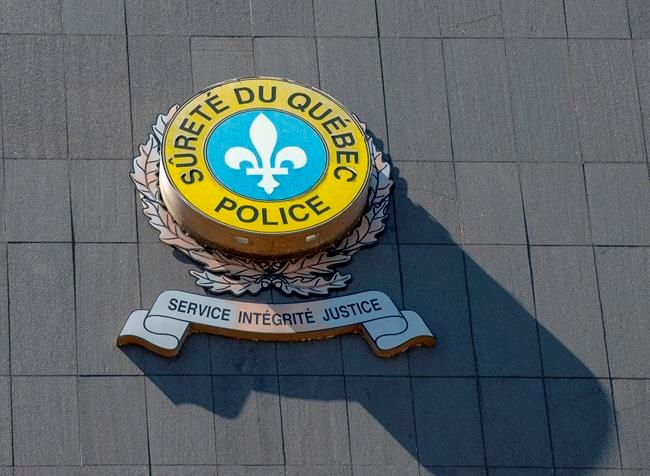MONTREAL — A 16-year-old Cree girl might still be alive had police spent more than 10 minutes looking for her after she had fallen into a ditch, a Quebec coroner has found.
Neebin Icebound died of hypothermia Oct. 9, 2022, in the Cree community of Waswanipi, about 490 kilometres northwest of Quebec City. Early that morning, police received a call reporting a partially naked woman lying on the ground near an elementary school, Coroner Karine Spénard wrote in her report on Icebound’s death.
Three officers — two from the Quebec provincial police and one from the Cree police service — responded, but they only spent around 10 minutes looking for the teenager, using the lights on their cars and a flashlight to search in the dark, foggy morning.
“I find it astonishing that the search didn’t continue longer or in a broader manner,” Spénard wrote in her report dated Sept. 7, adding that police drove by the street where Icebound would be found two hours later.
Given the cold, rainy weather, with temperatures around the freezing point, it would have been wise for police to have searched a larger area, the coroner said.
“This woman could have been the victim of a criminal act — intoxicated or simply ill," Spénard wrote. "As the police didn’t have this information, it was doubly important to be vigilant."
Icebound would be found by passersby — who reported to police that she was having trouble breathing — shortly before 6:30 a.m., around 200 metres from where police had been looking. By the time Icebound arrived at the Waswanipi clinic about 30 minutes later, she had no pulse, the coroner said. Medical staff tried to revive her for more than an hour before they declared her dead.
Spénard concluded that Icebound’s death was accidental — there were no signs of foul play and it appears Icebound took off her own clothes after they became soaked with water.
Icebound had been drinking with some friends near the school, Spénard said, and was very drunk when the group decided to visit another part of town. She was having trouble walking and trailed behind her friends. At some point she fell into a water-drenched ditch, and her friend, who had been helping her walk, left her there, the coroner said.
Images from a security camera, obtained by police investigators, show her crawling on the ground near an elementary school shortly after 4 a.m., wearing only a short-sleeved shirt, the coroner wrote.
The friend who had been with her was driven home by a police officer not long after 2:30 a.m. She testified that she had twice told officers that Icebound had fallen in a ditch and that they should go look for her.
Spénard wrote that an officer who drove the friend home testified that the young woman had made comments he couldn't understand during the short drive and that he didn't know she had been talking about Icebound.
The coroner said the province's prosecution service decided not to lay criminal charges against the officers who had searched for the teenager.
"However, it appears to me that the behaviour of the three police officers and the way they searched for a naked woman outdoors on a cold night deviates from the way professionals sworn to protect and serve the public should act," she wrote.
While she said it's not her job to lay blame, she recommended that the province's police ethics commissioner investigate the officers' actions and that provincial police and the Cree Eeyou Eenou Police Service review how the search was conducted.
Insp. Randy Kitchen, the senior officer on duty at Eeyou Eenou police headquarters Monday, said he wasn't familiar with details of Spénard's report but that his force takes coroner recommendations seriously and is always looking for ways to improve.
Quebec provincial police did not respond to a request for comment on Monday.
This report by The Canadian Press was first published Oct. 16, 2023.
Jacob Serebrin, The Canadian Press



